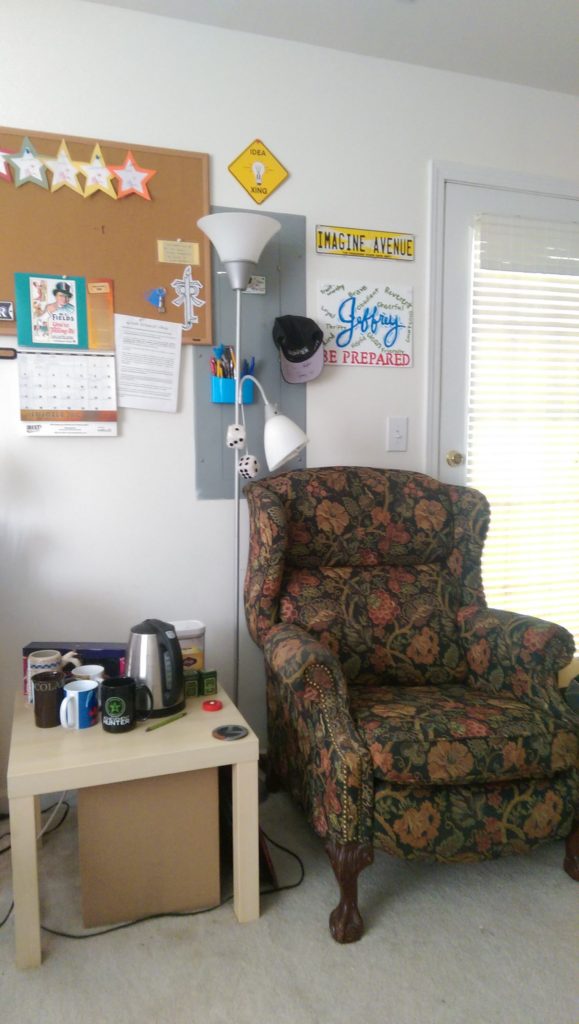Good morning, class.
I’m continuing to read through Dorian Gray, so I should be ready for an exciting lecture next week–discussing everything from the nature of art to the soul of the addicted sinner. Someone should bring snacks.
In the meantime, a friend of mine recently asked me a question I’d like to share with you. She is a high school English teacher, and she wanted my advice on motivating her students to read. It got me thinking about the times I’ve struggled with reading a text (yes, I know it comes as a shock that your amazing professor has ever disliked reading something). For a number of reasons, I’ve had to force myself to read things throughout high school and college, and I picked up on some helpful methods. Maybe something will jump out at you as a solution to your own reading troubles.

My Reading Space
First of all, I have a great room to read in. I’m usually alone, which frees me from distractions, and I have this awesomely comfortable chair. Multiple lamp options allow me to adjust my lighting easily. And there’s nothing wrong with the cute wooden table perfect for holding my cup of coffee.
To add to the environment, I almost always have music playing in the background. No Top 40, nothing popular, nothing even with lyrics–if it has words, it’s a distraction from the words on the page. I listen to very specific classical music and movie scores. I have private YouTube playlists compiling soundtracks from my favorite film composers, and I like to replay the same pieces over and over again (and once in a while, maybe, I’ll add something I heard recently to one of these playlists). The consistency of the music I listen to keeps me focused and in a mindset to learn/read/study.
That mindset is what keeps me actively reading. There have been periods where I don’t feel like reading at all, and I got through these periods by reading “professionally.” Sometimes I read like it’s a job I have to do, and the music helps with that. It also helps when I read aloud, or if I get out of my chair and pace the room as I read, both of which keep the words on the page fresh and meaningful (sometimes, the words simply become dull, and I have to MAKE them interesting).
Disclaimer: these tools work for me, and they may not work for you. Music may be a distraction for you, which you may find out if you try it a few times. Maybe you need to be around other people–the background noise may help you focus. You may need to be outside, or wear specifically chosen reading clothes, or adjust the thermostat to a pre-selected “reading temperature.” Maybe it’s different every time: when you read Hamlet or Macbeth, you ABSOLUTELY should read it aloud, but when you read Ulysses, it makes more sense in your head (that’s not true…read Ulysses aloud, it makes so much more sense). Don’t be afraid to experiment. If you learn how you learn, then you’ll learn how you read.
So keep reading!
Prof. Jeffrey
Recent Comments